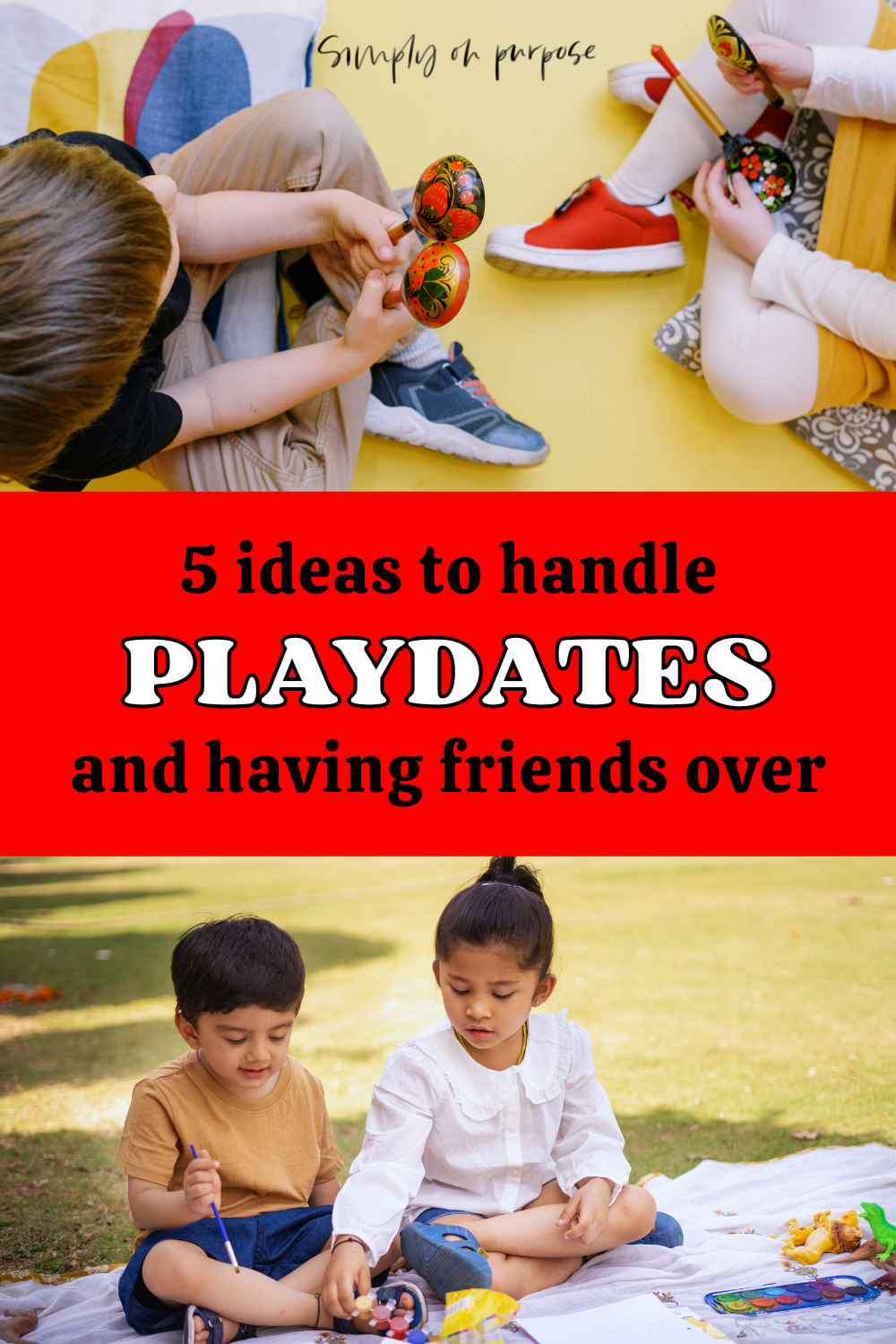Playdates and having friends over can be really fun for kids, but they can also feel overwhelming for an introvert like me! But, with a little preparation and a few simple strategies, you can make hosting playdates smoother and more enjoyable for everyone involved. Here are five ideas to help you handle playdates and having friends over:
1. Teach Kids to Plan It Out
If your child wants to have friends over, look over the calendar with them at the beginning of the week. When would be a good day to invite a friend over? Who are they inviting? What activities do they want to do? Helping them think through the logistics ahead of time not only makes things easier for you, but it also teaches them responsibility and decision-making skills. You can even have them create a checklist of things they need to prepare, like gathering toys or setting up games.
2. Choose the Best Time of Day
Timing can make or break a playdate. Consider your family’s schedule and pick a time of day that works best for everyone. For instance, afternoons might be ideal after chores are done in the summertime, while mornings could be better for younger kids with early nap times. Choosing a consistent time helps you avoid the chaos of last-minute plans and keeps the day running smoothly.
3. Establish a Predictable Schedule
Kids (and adults!) thrive on routine, and having a predictable schedule for playdates can be a game changer. Consider creating something like “Friday Friends Day,” where friends are welcome on a specific day of the week. This helps your kids know when to expect social time, and when family time takes priority instead. A consistent schedule also makes it easier for you to plan ahead and keep the rest of your week balanced.
4. Create a Playtime Signal
For neighborhood friends who love to drop by unannounced, a simple signal can set clear boundaries. Try using a green piece of paper in the window to show it’s okay to play, and a red piece for times when it’s not. This avoids awkwardness and helps kids respect your family’s schedule.
5. Set Boundaries for Events and Activities
You might look at the calendar and see an event your child wants to invite a friend to. Or, maybe certain events are for your family only. Talk through ideas with your child so you are on the same page. They’ll come to understand that both are good, and that there is time for both!
This strategy goes for toys and activities also. If your kiddo is inviting a friend over but doesn’t want them to touch certain toys, be sure they set the right boundaries beforehand. They can move those toys in the closet out of reach, or move toys for everyone’s use to a common area. Decide ahead of time which activities or toys are okay to share with friends and which are reserved for family use. This helps your child manage expectations and prevents misunderstandings. For example, the LEGO castle they’ve been building for weeks might be off-limits, but the board games and outdoor toys are fair game.
Bonus Tip: Keep a Stash of Playdate Snacks
Avoid frustration over missing snacks by keeping a designated stash of food you’re comfortable sharing. Whether it’s crackers, popcorn, or juice boxes, having a go-to stash ensures that playdate munchies are easy and stress-free, while keeping your favorite treats safe for family.
By teaching your kids to plan playdates, you can turn having friends over into a fun and non-stressful part of family life. With these tips, everyone wins: kids get their social time, and you get a little more peace of mind!
If you want more resources on building friendship in and outside of the home, you might enjoy these resources:
- 5 Manners to Teach Your Child Before a Playdate
- Let’s Build a Friendship – A Print Shop resource about strengthening sibling relationships
- Let’s Be Friends – A Print Shop resource about how to be and find the best kind of friends

